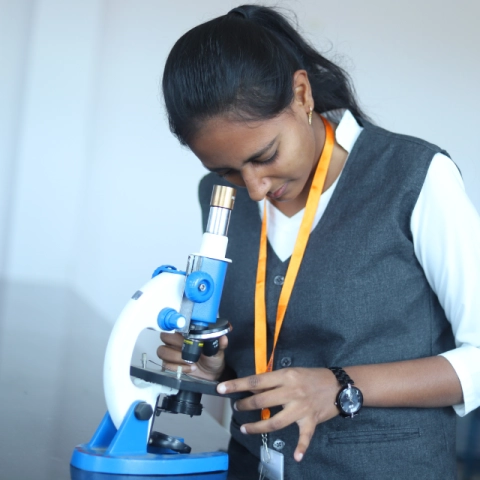The B.Sc. Physics is a three-year undergraduate program that combines theoretical and experimental courses primarily in Physics, along with interdisciplinary subjects from Mathematics, Chemistry, and Computer Science. The program emphasizes the foundations of classical and modern physics, covering areas such as Quantum Mechanics, Relativity, Classical Mechanics, Electrodynamics, Optics, Waves, Statistical Mechanics, and Thermodynamics. Its mission is to provide students with a strong foundation in both traditional and contemporary concepts of physics. Through a well-structured curriculum, research opportunities, field trips, and extensive laboratory training, students develop a holistic understanding of the subject. They also gain hands-on expertise in laboratory work, including the design and development of experimental apparatus. The undergraduate degree lays a solid foundation for students to specialize further in physics and related fields, while also preparing them for entry-level careers in academia, research, government, and industry.
Duration of programme
Level of Study

Explore advanced topics in Classical Mechanics, Quantum Mechanics, and Electrodynamics.
Study specialized areas like Nuclear Physics, Solid State Physics, and Statistical Mechanics.
Gain expertise in Mathematical Physics, Computational Physics, and Research Methodology.
Engage with emerging fields such as Nanoscience, Material Science, and Astrophysics.
10+2 in relevant discipline
Minimum 60% Marks